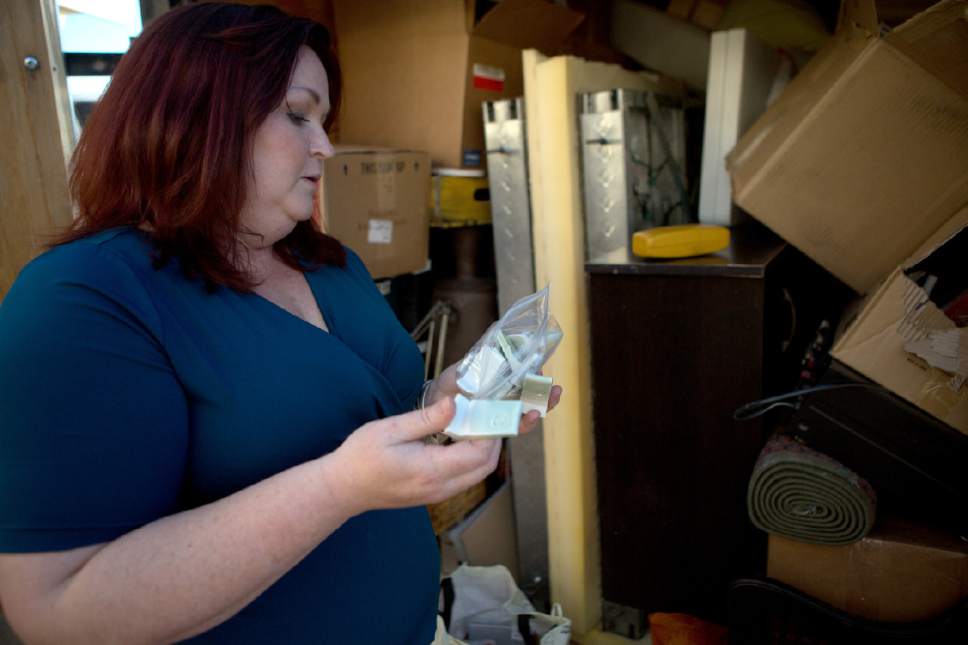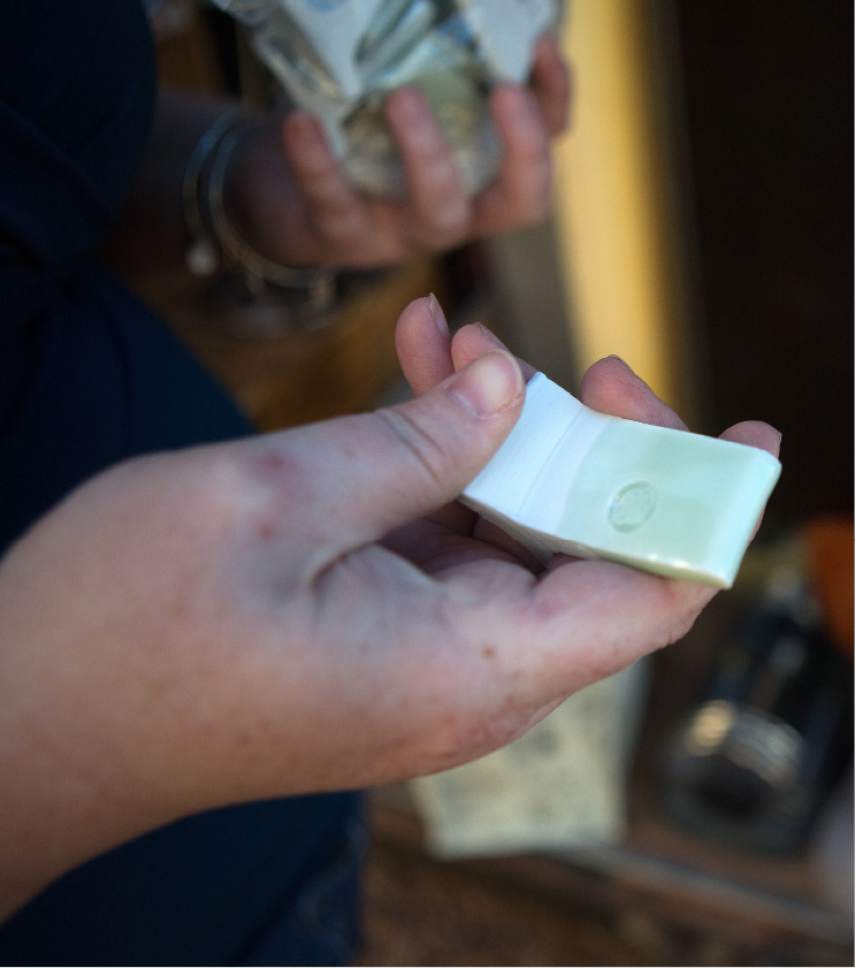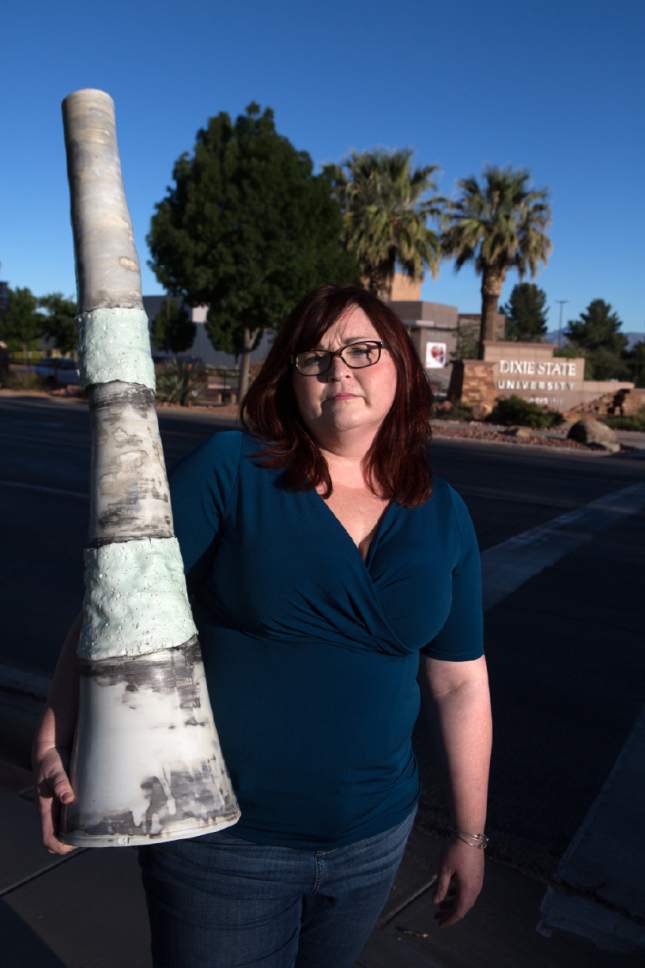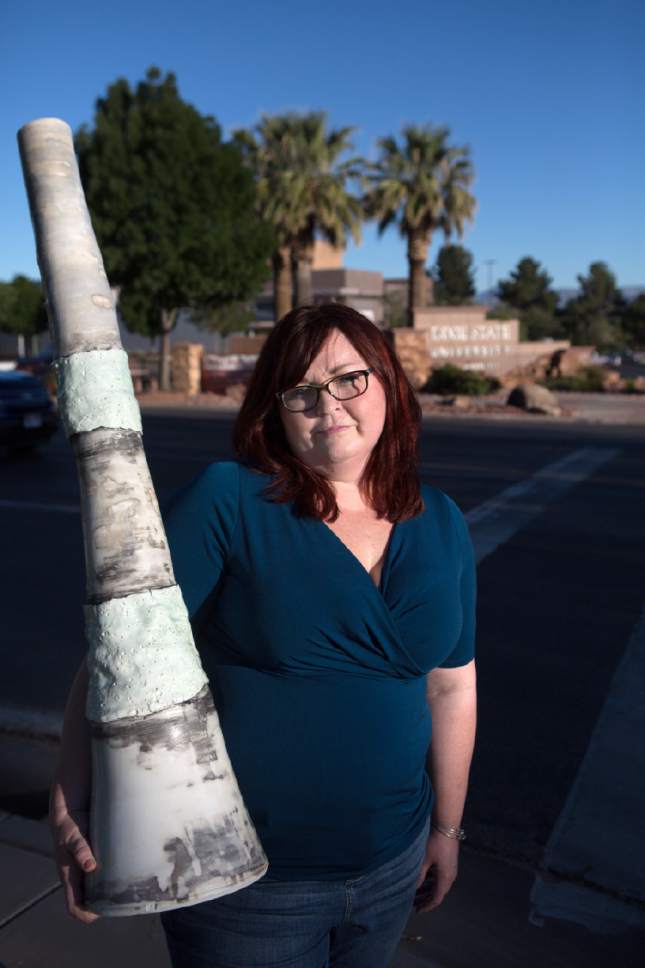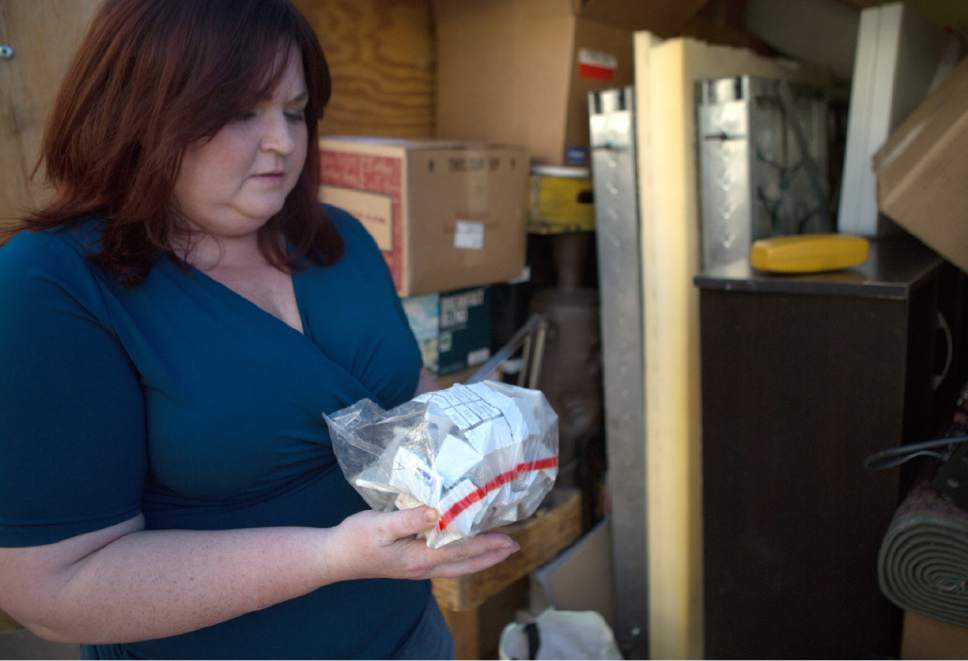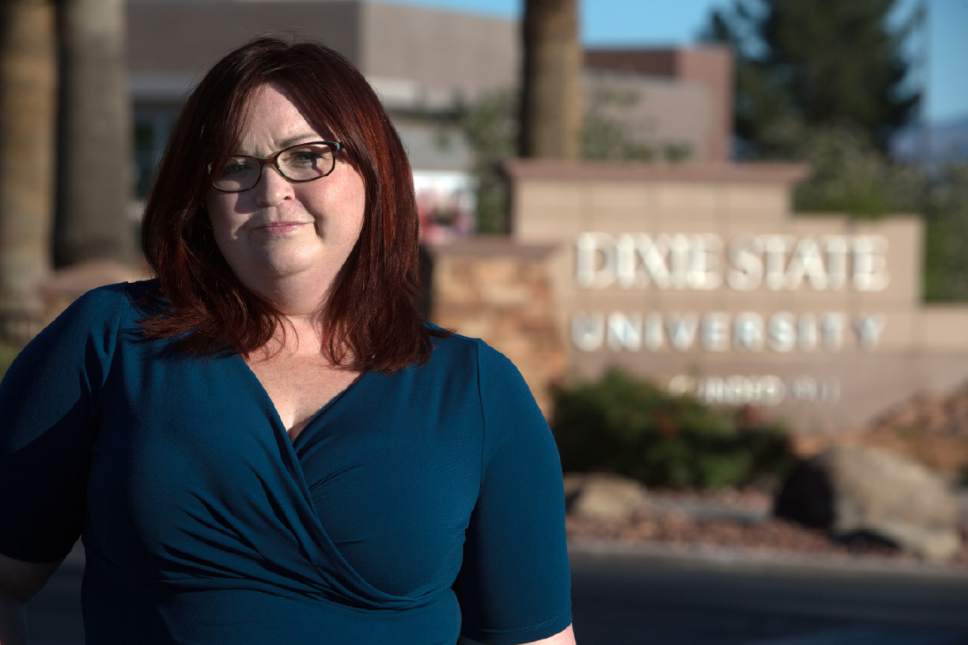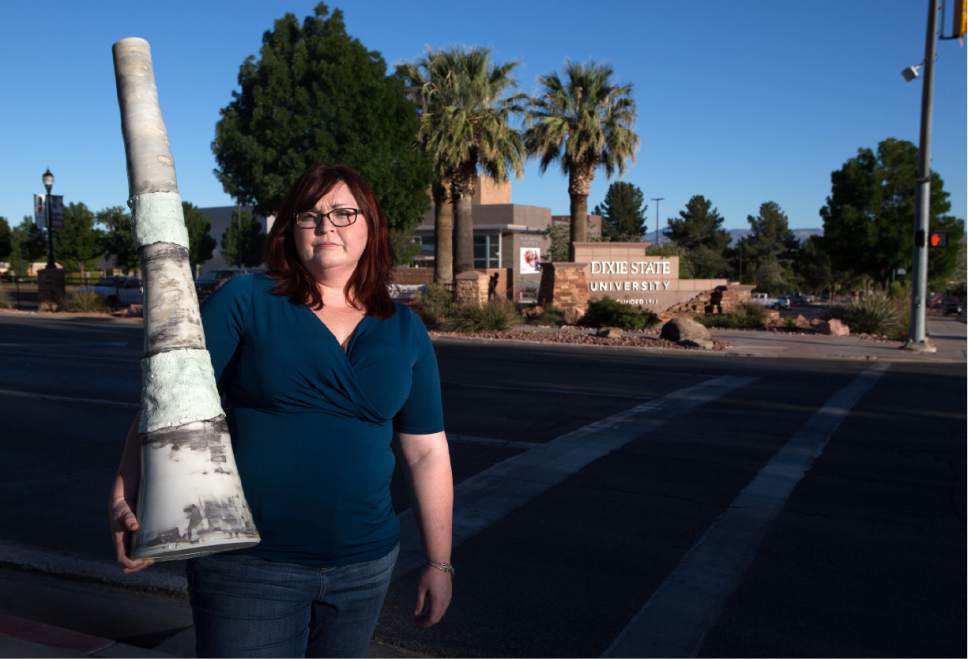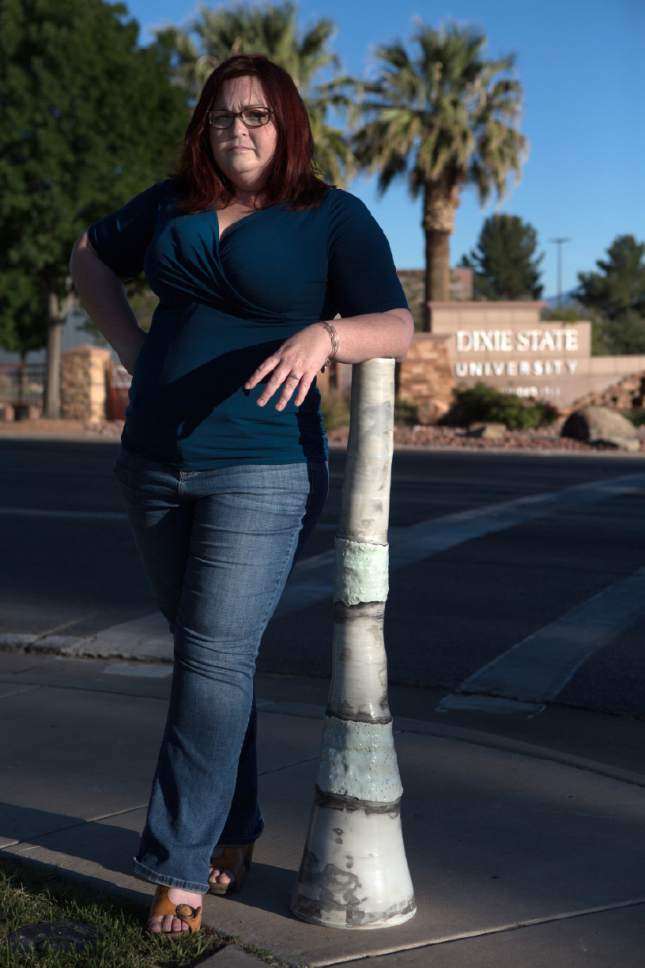This is an archived article that was published on sltrib.com in 2017, and information in the article may be outdated. It is provided only for personal research purposes and may not be reprinted.
Former student Victoria Willard says faculty members in Dixie State University's art department made sexual comments to her and in class that made her feel uncomfortable and, at times, unsafe.
Describing remarks made over about a year, beginning in 2014, Willard alleges that one faculty member graphically described to her class a dream in which he was "sexually intimate" with clay. Another told her in a text message that he wanted to touch her husband's "heinie" because it was "so hot," she said.
Still another touched her lower back in a sexual manner and pulled her close during a demonstration, asking if she was married and whether she had "nude sculptures in her portfolio," she said.
But when she reported those examples and other behavior to the school's Title IX office, which oversees a federal law barring sex discrimination on campus, the staff mishandled her case, she says.
This month, Willard filed a federal complaint against the school. The U.S. Department of Education's Office for Civil Rights has not announced a decision on whether it will investigate. Three Utah schools — the University of Utah, Brigham Young University and Westminster College — are under investigation for potentially mishandling sexual-assault complaints.
In her complaint, Willard alleges that she faced gender-based discrimination, the school failed to prevent its recurrence and to conduct a prompt and impartial investigation, and that it expelled her in retaliation for her report.
"My primary desired outcome is for Dixie State University to have no choice but to change its radically intolerant treatment of women," she said.
In a statement, Dixie State said it could not comment on the details of a specific report, but it said its harassment and discrimination policy "was followed in respect to the particular circumstances of this unique case."
Reports are taken seriously, the school said, and investigations, including interviewing relevant witnesses, are conducted "promptly, thoroughly, and confidentially." Students, faculty members and staffers are trained about Title IX, and incoming freshmen meet the office's coordinator at orientation.
"The university is a dedicated advocate for its students and their safety and works hard to ensure that all students feel safe on campus," its statement said.
—
'Leave the program' • Willard told people in the art department about her concerns, she said, but they didn't act. A friend told her about the Title IX law, and she learned of Dixie's Title IX office, which had opened in January 2015.
Willard made a formal report in January 2016 against two faculty members to Title IX coordinator Cindy Cole, who had started in the position five months earlier. But Cole did not interview any of the students Willard provided as witnesses, Willard's complaint states. She asked for a chemistry tutor to help her catch up on missed work, she said in the complaint — but Cole denied that request.
Under Title IX, schools must provide services to individuals who report discrimination or violence — including counseling, help with school work and housing changes — if requested.
At one point, Willard alleges, Cole said that she "was giving her too much information and taking up too much of her time."
On June 22, 2016 — 168 days after Willard's report was filed — the school notified Willard that her claims of sexual harassment against one faculty member were unsubstantiated. Because officials sent the notice to her school email address, Willard said, she did not receive it until July. The deadline to appeal had passed by the time she received notice and she said she never heard from officials about her report against the second individual.
The U.S. Department of Education recommends that schools complete their investigation within 60 days, but it's not a requirement.
Federal law prohibits universities, including students, from retaliating against an individual "for the purpose of interfering with any right or privilege secured by [Title IX]." But Willard said she faced immediate retaliation after making her report.
The next month, she said, one of the individuals she had accused restricted her access to the ceramics studio. When she asked Cole to intervene, the complaint alleges, Cole told Willard that the faculty member "was the one to decide whether and when I should be able to access the studio — despite the fact that [he] was the primary focus of my Title IX complaint."
That same month, a work-study student left a threatening note on a piece of her art that read, "leave the program," the complaint states.
The Office for Civil Rights does not outline specific sanctions for retaliation, said S. Daniel Carter, a campus security consultant. But it could result in a separate Title IX violation — even if the underlying sexual harassment and discrimination report isn't substantiated, he said.
—
The accuser accused • Willard had signed up for her fall semester classes at Dixie State when she received a letter on Aug. 1, 2016, informing her that her education would be put on hold because she had been accused of student-code violations.
The misconduct she was accused of — including stalking a faculty member, copying a school key and being intoxicated at a school event — allegedly occurred in 2015, Willard said, and the allegations were baseless.
She never stalked the professor, she said, and had been given permission to copy the key from that same professor. The intoxication claim was based on "flippant joking" by one of Willard's friends, she added.
"It was clear to me that the allegations were directly linked to the fact that I filed a Title IX complaint," Willard wrote in her complaint.
She was given nine days to prepare her defense before facing a student conduct hearing committee made up of faculty, staff and students.
When she arrived at the hearing — which lasted several hours and included testimony against her from one of the faculty members she had reported — she said she was informed of a fifth alleged violation: inappropriate use of Title IX.
On Aug. 15 — five days after the hearing — Willard was informed via a letter that she would be denied access to "any further educational opportunities" at the school. She would, however, be provided a bachelor's of science in art. That was not the degree Willard was seeking.
She had been on track to receive a dual degree in chemistry and art in about two years, attending school part time. She planned to enter a chemistry graduate program after that, the complaint states, but could not do so without that extra year of chemistry coursework.
Instead, Willard is set to begin a material science graduate program this fall at Alfred University in New York state.
The expulsion, she wrote in the complaint, "was wildly disproportionate in relation to the allegations." She said she tried to appeal, but the decision was upheld by the school without a hearing.
—
A new judgment • Days after Willard was expelled, she got another surprise, she said. In another letter, Cole informed her that a sexual-harassment complaint, filed against Willard by an art department faculty member, was "complete."
Willard had not been given official notice of the case, she said, and she was never given a chance to defend herself. "I had no idea — and still have no idea — what the charges were," Willard wrote in her Title IX complaint.
The letter said Cole found that Willard "did commit sexual harassment against" him, adding that it was her "recommendation that Willard be suspended from Dixie State University."
Willard appealed, but she said she has not received a response. Now she wants the Office for Civil Rights to investigate how the school handled her case.
If a school is found to have violated Title IX, it usually reaches a settlement with the office and must show it is making new efforts to comply with the federal law. The office has said it aims to resolve complaints in 180 days, but it can take longer, depending on the case.
Willard also wants an external team to assess the art department and for the university to "commit to hiring senior female faculty members."
"If the university is not held responsible for its role in allowing these events to persist, such sex-based abuses will continue to recur, and DSU will remain a hostile environment for women in which their access to the benefits of an education will remain unequal," Willard said in her complaint.
Twitter @ alexdstuckey


